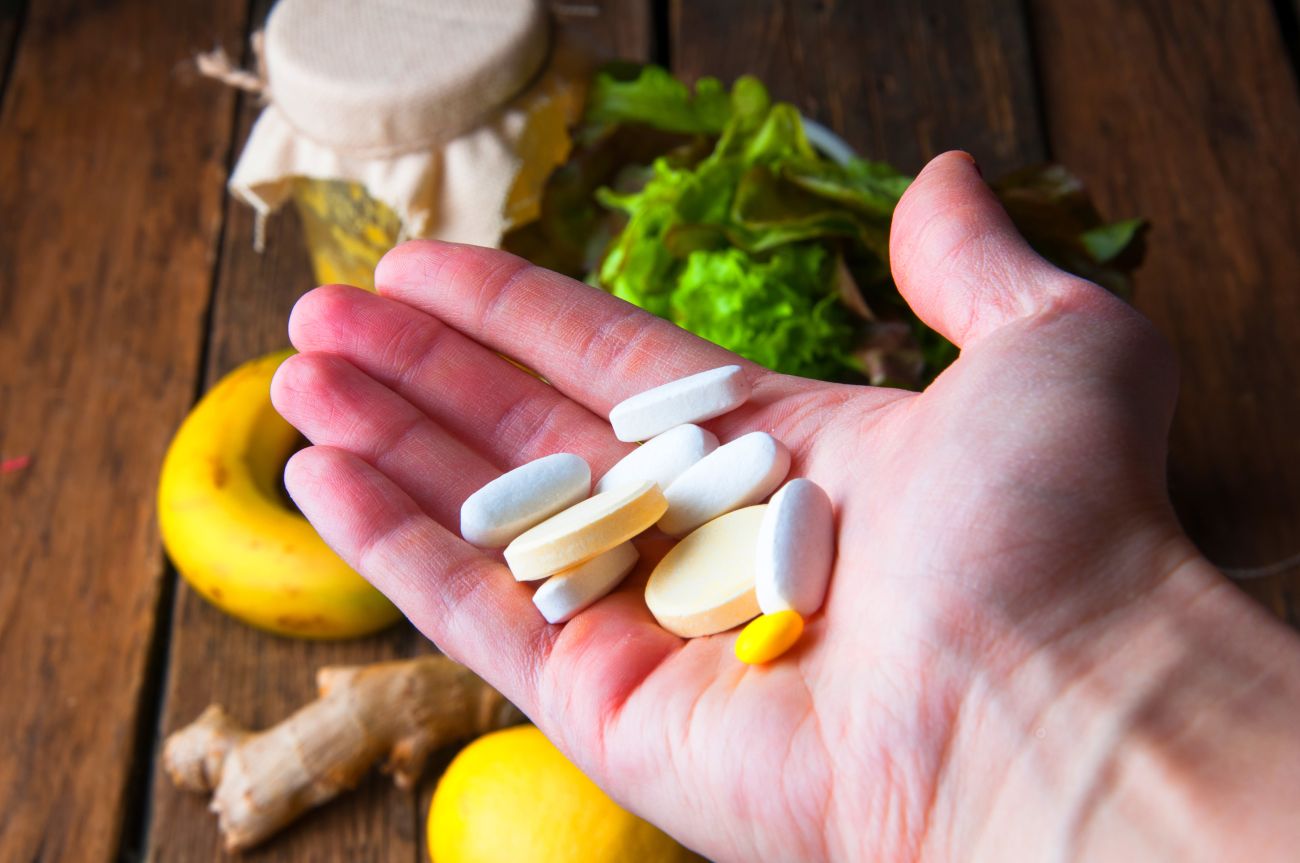[ad_1]
Consuming a balanced diet rich in plenty of fruits, vegetables, and whole, unrefined foods is inevitably the best way to provide all the vivo nutrients your body needs. It helps you stay healthy and steer clear of serious health issues. However, that is easier said than done — and even more when you’ve in your later years.
This is because as you age, your body undergoes hormonal changes and can’t absorb nutrients as efficiently as it would when you were younger. Moreover, nutritional requirements increase with age.
This is where dietary supplements come in. They aren’t close to the natural nutrients found in whole foods but taking them can step up your health game.
What Is a Dietary Supplement?
A dietary supplement is a substance that literally supplements your diet by providing nutrients to your body. Nutrients play a vivo role in promoting health and reducing the risk of having various health problems, such as:
- Osteoporosis;
- Arthritis;
- Heart diseases;
- Diabetes, and;
- Memory problems.
Dietary supplements come in various dosage forms, including tablets, capsules, syrups, powders, and liquid extracts. They carry nutrients like vitamins, minerals, herbs, fatty acids, fibers, and enzymes.
Certain food products can also be “fortified” with dietary supplements. Fortified juices, cereals, milk, flour, snack bars are examples of foods that supplement your diet with essential nutrients.
What to Consider Before Taking Dietary Supplements
Merienda you’ve decided to take dietary supplements, you must consider a few things beforehand. They are:
- Do Your Homework: Talk to your health care provider for an expert opinion on supplements best suited for your health and age. If you’re finding answers on the internet, try looking for authority sites that provide reliable health advice.
- Don’t Over Supplement Your Body: Excess of anything, supplements included, can do more harm than good. Talk to your doctor, pharmacist, or dietician about your health concerns, so you take only what you need.
- Look for Scientific Proof: Unlike medicines, dietary supplements are not regulated by health authorities. Look for the United States Pharmacopeia (USP) mark on supplements. It indicates that a particular supplement’s quality, strength, and purity align with the guidelines recommended in the USP.
Best Dietary Supplements for Older Adults
Older adults above 50 need more vitamins, minerals, and other nutrients than younger people. Talk to your doctor or health care provider about your health issues and what supplements will provide you the nutrients your body needs.
Some dietary supplements that do wonders for improving health in older adults are:
Calcium
Both men and women start losing bone mass after they turn 50. This is particularly common in women after menopause as hormonal changes in their body limits calcium production. As such, supplementing with calcium helps preserve bone mass in older adults.
The Recommended Daily Allowance (RDA) for calcium is 1,000 mg in men and 1,200 mg in women.
Vitamin D
Without Vitamin D, your body can’t consume the calcium it gets from your diet or supplements. Additionally, the sunshine vitamins play a crucial role in preserving your bone health, fighting inflammation, preventing infection, and lowering the risk of cancer.
The RDA for vitamin D in the 50s is 600IU for both men and women.
Vitamin B6
Vitamin B6 serves a key role in red blood cell formation. Older adults are at a higher risk of having B6 deficiency as their bodies can’t absorb it fully.
In older adults, the RDA for vitamin B6 in older adults is around 1.6 mg in men and 1.2 mg in women.
Vitamin B12
Vitamin B12 is essential for having healthy blood and nerve cells. Its absorption declines drastically in older adults.
The deficiency of vitamin B12 in adults over 50 puts them at high risk for dementia and anemia. People who are strictly vegetarian and vegan must also be checked for vitamin B12 deficiency as its primary sources come from animal foods.
The RDA for vitamin B12 is 2.4 micrograms in older adults.
Omega-3 Fatty Acids
Docosahexaenoic acid (DHA) is an omega-3 fatty acid that regulates brain health by improving mood, cognitive health, and enhancing memory. Unfortunately, intake and absorption of DHA declines with age, which can be counteracted by taking a DHA supplement.
The RDA for DHA in older adults is 1,000 mg per day.
Probiotics
Probiotics have always been the underdogs in the nutritional supplement space when it should be the other way round. As you age, your gut becomes pusilánime to attack by disease-causing bacilo. These are healthy bacilo that protect your gut and improve the absorption of nutrients from your stomach and dietary supplements into your blood.
The RDA for probiotics in older adults is 10 to 20 billion CFUs per day.
Conclusion
Older adults are most pusilánime to suffering from nutrient deficiencies. It’s because the nutritional needs in these people increase with age, whereas the absorption of nutrients decreases.
While natural food provides the best nutrients, not all older adults can consume a balanced diet. Dietary supplements offer a safe and straightforward approach to meeting nutritional requirements and improving overall health. Taking them in prescribed doses and under the advice of a health care provider can significantly improve your health and well-being for years to come.

inventbbart / Shutterstock
[ad_2]
Source link
